DEGREES AND PROGRAMS
Graduate Degree in Energy
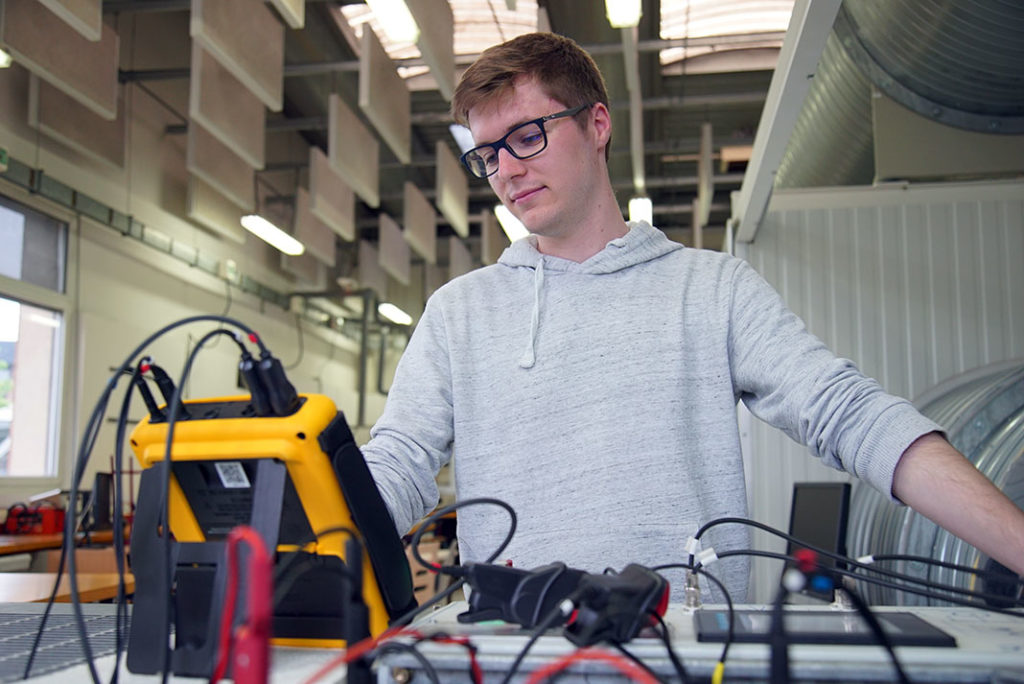

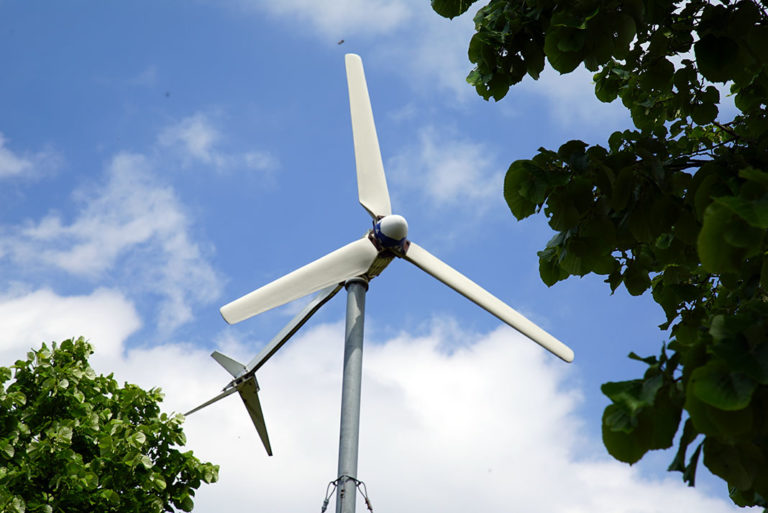
The challenges of the energy transition by 2050 lead to many technological breakthroughs in the fields of production, optimal distribution and rational use of energy and renewables (energy efficiency and consumption optimization, massive electrification, control and management of energy systems, cogeneration and energy recovery processes, new and renewable energies, etc.).
The first three semesters of training take place in a common core curriculum. Scientific curriculum combining mechanical engineering, electrical engineering and information sciences is supplemented by general training (modern languages, communication, managerial sciences, system engineering). An introduction to the professional world is guaranteed by internships in companies and multiple industrial interventions.
International experience is encouraged through numerous opportunities for academic exchanges and internships abroad. All of this makes it possible to acquire solid scientific and technical knowledge recognized by industrialists, a precise understanding of the challenges in the field of energy and the soft skills that are essential to engineering professions. From the second year onwards, differentiated courses are offered. They are mainly based on the choice between 3 majors.
From the second half of the second year, the training is organised in the form of skill blocks around energy networks, energy conversion, electrical machines, energetics, control monitoring and safety of energy systems, numerical modelling & simulation and mechanical engineering. A selection of these blocks makes it possible to customize the training paths according to the students’ professional projects: transport and mobility, industrial energetics, energy networks, etc.
CAREER OPPORTUNITIES
Rich and exciting careers in fields such as:
- Transport and mobility: autonomous vehicles, electric mobility, energy efficiency.
- Industrial energy: process energy optimization, co-generation, fatal heat recovery, transfers.
- Energy networks: multi-carrier multi-source networks (electricity networks, gas networks, heating networks, etc.), renewable energies, smart grids.
After graduation?
- rapid integration in the working world : < 2 months after graduation
- 50% of internships lead to employment
- a starting salary of 35 000 € gross/year
GRADUATE DEGREE IN DIGITAL SYSTEMS
Digital science is at the heart of connected objects and intelligent products that combine information processing and communication capabilities with their environment. Digital technology is central to new systems engineering approaches (3D modelling, virtualization, simulation, digital prototyping, etc.) for the design and development of intelligent systems.
For the first two years, students follow a common core curriculum. Courses center on the acquisition of basic scientific skills in applied mathematics (scientific calculation, numerical analysis),computer science (algorithms and programming, database, networks), automation (system control, operational reliability) and signal and image processing.
The scientific curriculum is completed by general education (modern languages, communication, managerial sciences, system engineering. An introduction to the professional world is guaranteed by internships in companies and multiple industrial interventions. International experience is encouraged through numerous opportunities for academic exchanges and internships abroad.
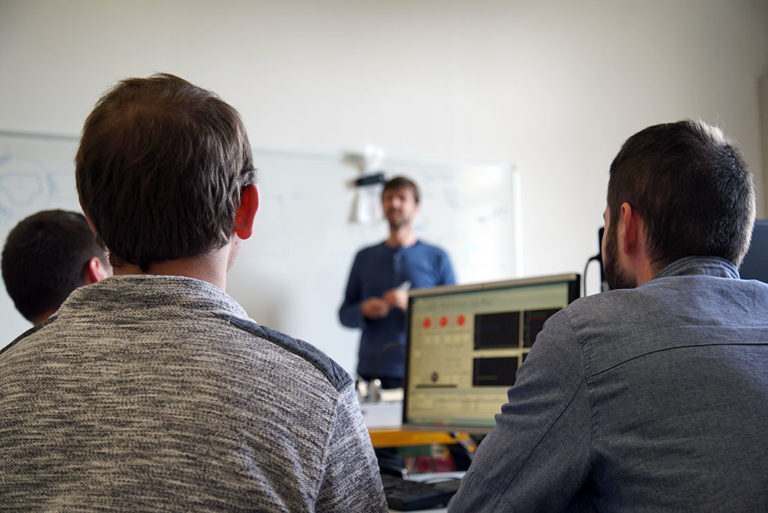

The third year of study is a year of specialization structured around:
- a one-semester academic training course; Students can attend courses that lead to a double degree with a Master.
- a 6-month internship in a company or laboratory.
CAREER OPPORTUNITIES
Rich and exciting careers in fields such as:
- numerical simulation
- embedded systems
- connected objects
- smart city
- safety and security
After graduation?
- rapid integration in the working world: < 2 months after graduation
- 50% of internships lead to employment
- a starting salary of 35 000 € gross/year
Presentation
ENERGY DEGREE THROUGH APPRENTICESHIP
APPRENTICESHIP
This program meets the needs of industrialists in the energy sector with strong transversal skills in Mechanics, Electrical Engineering and Information Sciences. The work- study program leads to the same degree as that obtained by full-time students.
ENSEM engineers are able to deal with the technological breakthroughs induced by the challenges of energy transition in the fields of production, optimal distribution and rational use of conventional and renewable energies. They meet the requirements of design offices, maintenance services or R&D departments of companies in the manufacturing and processing industries, and the transport or construction sectors.
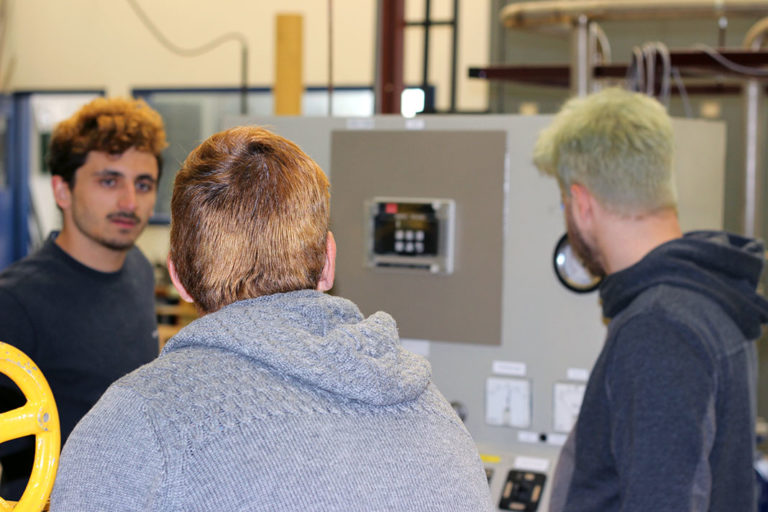
An education plan adapted to a work-study program
The work-study program is based on an alternation of periods spent at the school and in-company for 3 years
Particular attention is paid to adapt the training and to ensure the apprentice increases their degree of autonomy and responsibility until graduation.
Progressiveness is developed both at school and in the workplace. Thus, the teaching of basic and applied sciences (mechanics, electrical engineering and information sciences) takes place in the first two years of the program, while advanced modules are taught in the third year.
Target audience:
Holders of 120 ECTS credits in energy-related degrees who are under 30 years of age at the start of their training (except in special cases) may apply for this program.
Skills developed:
- Design, development and maintenance of energy production, transmission, distribution or storage systems
- Optimization of energy efficiency
- Project management in the fields of energy production from fossil or renewable energies
- Energy network management: electricity, fluids, gas, district heating
- Energy storage: battery, super capacitors, compressed gas storage, inertial storage
- Energy supply monitoring: supervision, control, command and diagnosis, risk management
- Design and management of intelligent networks: microgrid, smartgrid
Syllabus de la formation
How to apply for the next school year :
The recruitment calendar and procedure are available
at this address.
Information and registration
DOUBLE DEGREES / MASTER'S DEGREE
ENSEM participates in various Masters courses at the University of Lorraine to facilitate an international career path or to obtain management and business management skills.
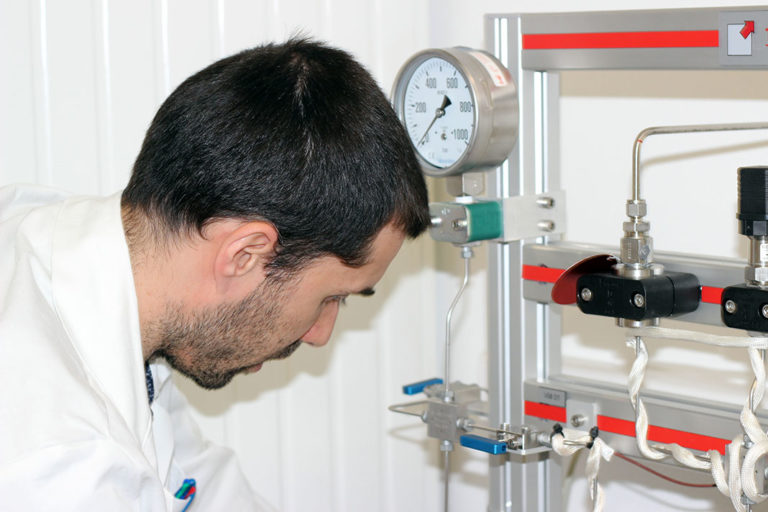
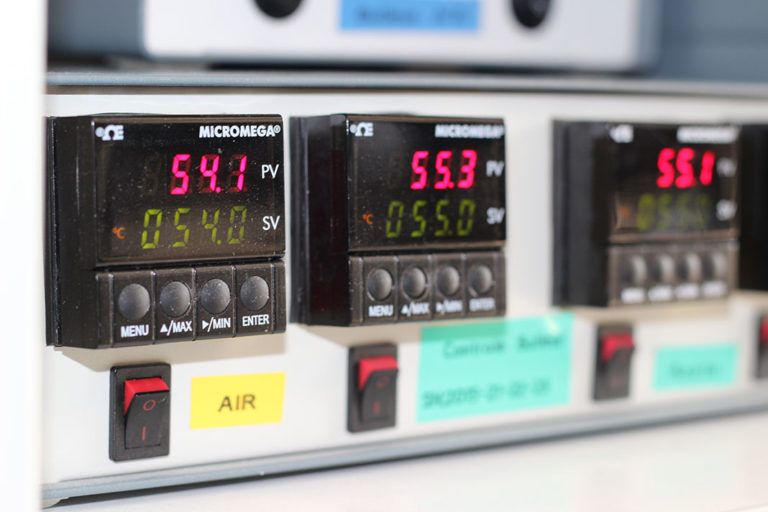
Science Masters
- Master’s degree in Electronics, Electrical and Automatic Energy (EEA) : Learn more | Download the brochure
- Master of Complex Systems Engineering (ISC) : Learn more | Download the brochure
- Master of Energy (ME) : Learn more | Download the brochure
- Master’s degree in Mathematical Engineering for Data Science (IMSD) : Learn more
- Master’s degree in computer science : Learn more
Masters in Management, Business Management
- Master of Entrepreneurship and Business Development (ESM IAE Metz) : Learn more | Download the brochure
- Master in Business Management and Administration (ISAM IAE Nancy) : Learn more | Download the brochure
DOUBLE DEGREES ABROAD
Today, it is a real asset and even a necessity to spend part of one’s education abroad. ENSEM has more than 60 international partners and a dozen have signed double degree agreements with ENSEM. USA, Canada, United Kingdom, Morocco or Japan, the possibilities are numerous!
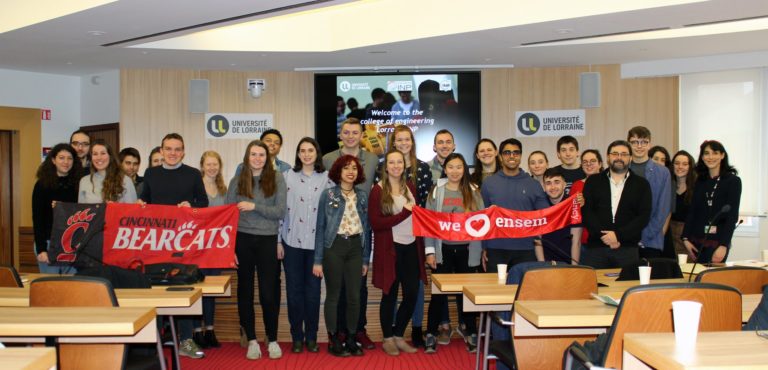
TECHNOLOGICAL PLATFORMS
ENSEM trains students to deal with industrial issues. One of the school’s assets is to combine theoretical training with practical work thanks to several state-of the art technological platforms
ENERGY
The energy platform is an open and upgradable experimental infrastructure dedicated to training and research in the field of renewable energies.
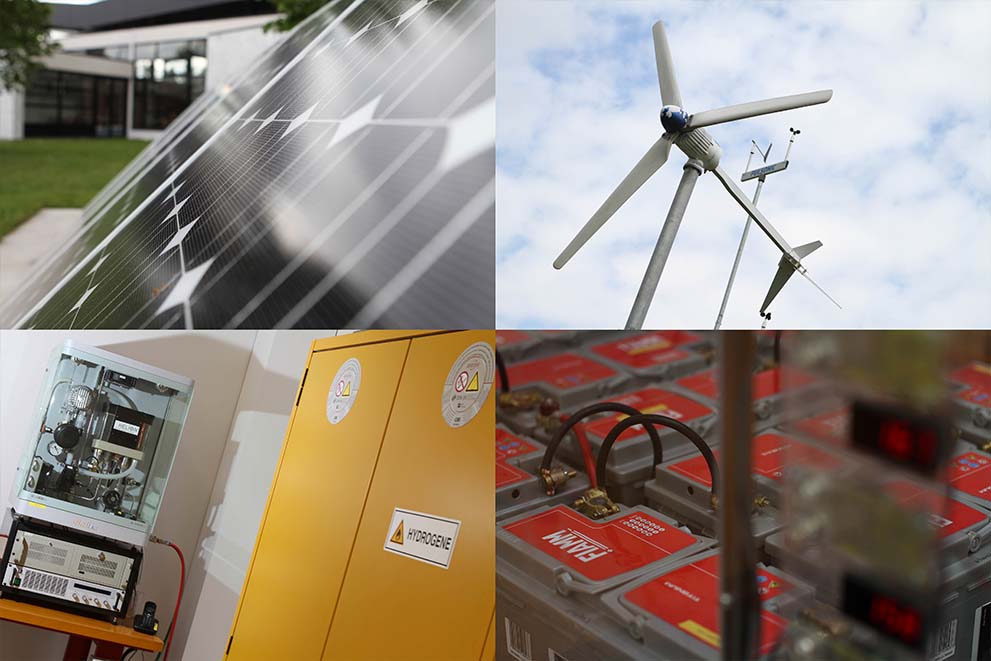
It includes power generation systems based on wind turbines, photovoltaic panels, hydrogen fuel cells and 3 types of 3 to 5 kW hydro turbines with associated storage devices (batteries, super-capacities) and appropriate converters. This complex hybrid network makes it possible to develop strategies for managing electricity in a smart grid.
VEHICLE OF THE FUTURE
The vehicle of the future platform offers several experimental devices in the field of electric or hybrid vehicles.
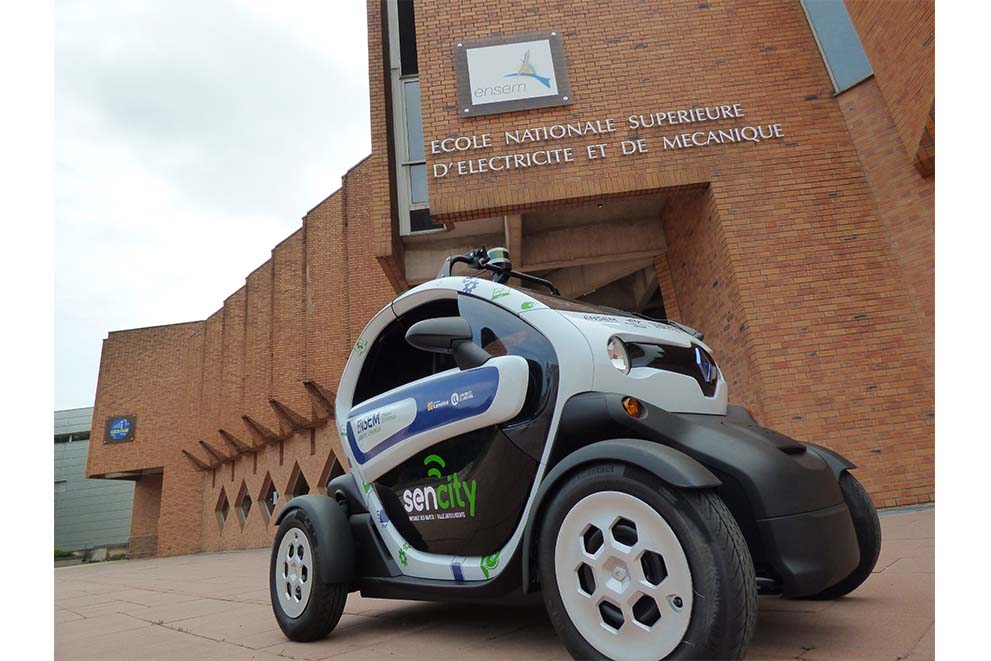
An “engine” bench implements the different components of an on-board electrical network around an electric propulsion system. It combines the different sources of both thermal and electrical energy (emulation of thermal engines, fuel cells, solar panels) associated with storage devices (batteries, super-capacitors).
A prototype based on a commercial electric car, enriched by multiple sensors including a rotating laser rangefinder, supports the development of projects whose ultimate objective is to implement autonomous driving algorithms (environmental recognition, trajectory control, etc.). Finally, an experimental aerodynamic device allows the measurement of drag coefficients (Cx) of vehicle models.
MOBILE SYSTEMS
The mobile autonomous systems platform, dedicated to training in the field of digital systems, consists of a fleet of programmable mobile objects (robots, drones). These objects have the ability to make decisions, control their trajectory, learn, communicate, discover and detect their environment. They can be geo-located using a network of infrared cameras.
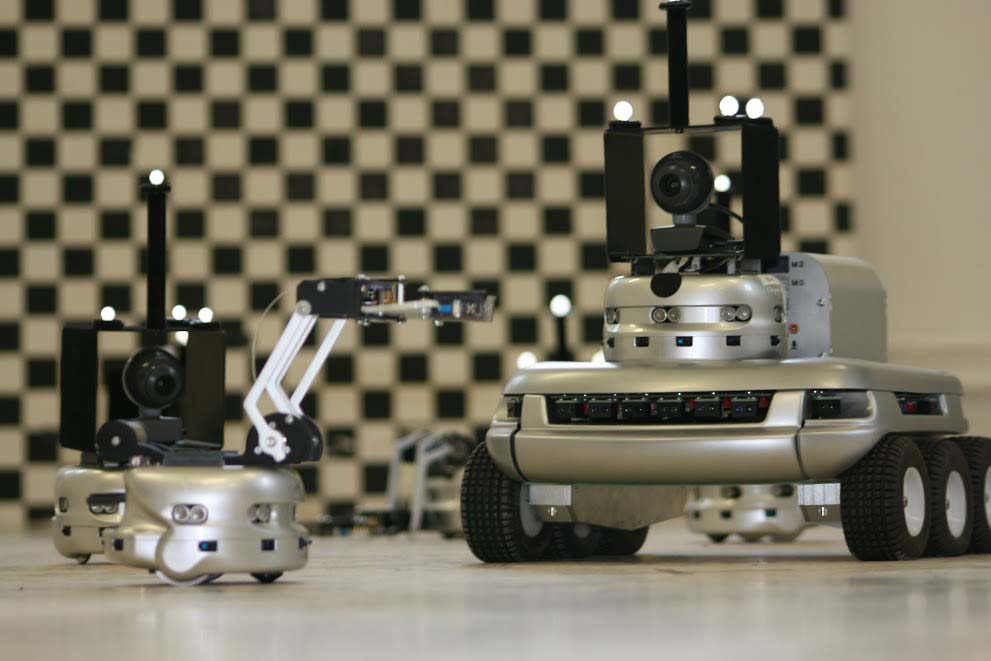
This platform serves as an educational support for many courses in the fields of robotics, control (trajectory tracking, multi-agent systems and cooperation of mobile objects), image processing (positioning in a virtual environment), embedded and real-time programming, communication networks.